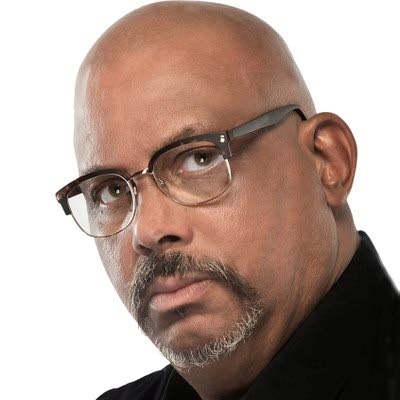A time for the meek

BitDepth#1300
THE MEEK, we are advised in the Beatitudes, will inherit the Earth. This is probably a good time to consider what that really means.
The term is usually taken to refer to those who are dutiful and obedient, but it is also taken to reference those among us who are gentle and humble.
We could do with a lot more of both. These characteristics tend to accompany an inclination to empathy, possibly humanity’s most valuable attribute more than a year into a crippling pandemic.
Our instincts are to gather, to join in celebration, to pursue personal contact, and now we are back in something not far off lockdown.
As I make these notes to a first draft, I am under a tent in Diego Martin, awaiting vaccination. A middle-class woman near me hovers on the edge of taking a superior tone with a customer service representative. The young woman with her clipboard and list is carefully controlling her responses.
Simmering beneath this barbed conversation is fear and control.
For one, it is the fear of having lost control of access to a potentially life-saving process; for the other, there is the fear of losing control of a growing group of tense elderly people, most of whom don't seem to have appointments.
Amid all this loss, of life, of jobs, of the security of knowing, at least in a general sense, of what tomorrow might bring, there is this fear of losing control. It finds odd expression. The staggering old man at a Westmoorings grocery who, after walking the aisles, mask ineffectively askew, ended his midday jaunt with a rambling rant about his rights when stopped from drinking his beer at the store's exit.
It's easy to dismiss such responses to the restrictions as ignorance or a wilful jacka--ing of the scene, to reference a popular colloquialism.
But fear fuels far more. Fear of acknowledging any value in the ruling party's approach to the pandemic, which is met, in turn, by a determined unwillingness to acknowledge missteps.
Fear of the consequences of accepting orders from an unapologetically black man in a leadership role that stokes defiant behaviour that trades common sense for misplaced personal agency.
Fear of the unknown, an invisible nemesis we've been in an urban skirmish with for 14 months now with no sight of its menace, only its victims and mortalities, is difficult to rally to effective response with funerals viewed on YouTube or scientific explanations.
Does anyone without a clinical background or epidemiological degree really understand the concept of viral load? I've read three articles about it, and I'm still unclear.
Everything about covid19 has enforced distance, and arm's length is now too close.
In the grip of fear, even when it's only present as a grinding, persistent uncertainty, people haven't the emotional space left to offer caring and concern. Empathy withers with distance, remoteness debrides the nuances of our engagements.
Fear feeds well on confusion and misinformation, feasting on slivers of misunderstood and misdirected information. It courts defiance and irrational response, stoking angry reprisals against regimes of orderly thinking.
The novel coronavirus may need humans in close proximity to spread and thrive, but it flourishes on divisive human politics and social stratification, efflorescing in the manufactured conflicts and disagreements that have always divided us.
Covid19 finds fertile ground in all that separates us.Faced with a virus that evolves to spread faster, we must learn to be better at being human, adapting to do what the virus cannot, caring for and about each other.
It is the way of the meek, it is the way of containment; it is the way to our future.
Mark Lyndersay is the editor of technewstt.com. An expanded version of this column can be found there


Comments
"A time for the meek"